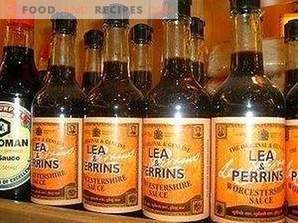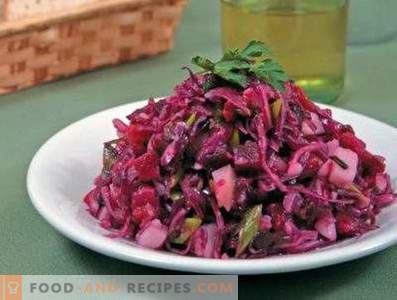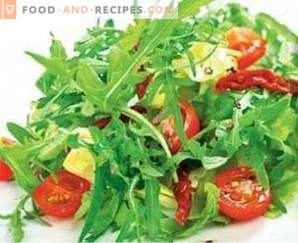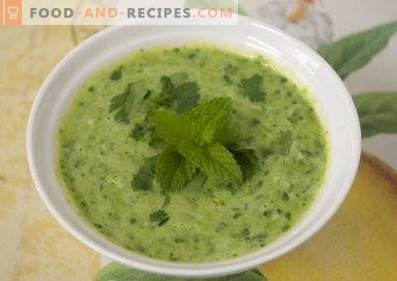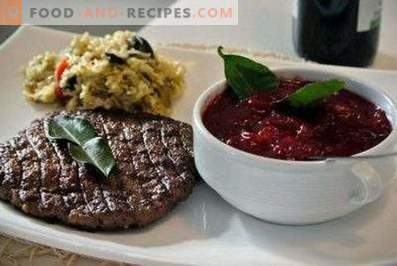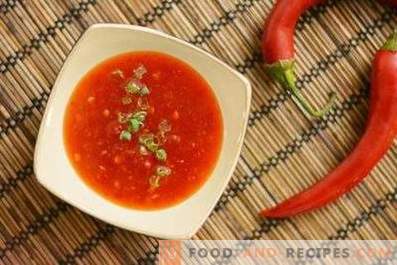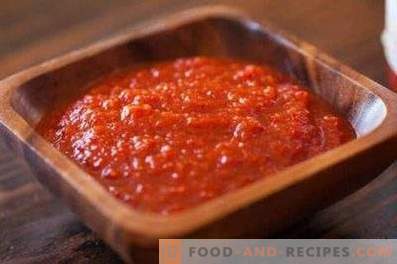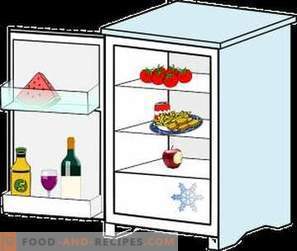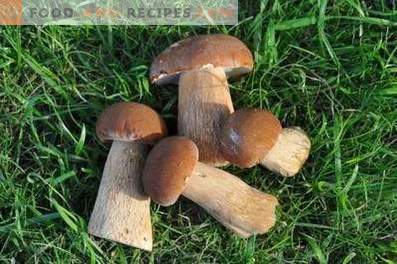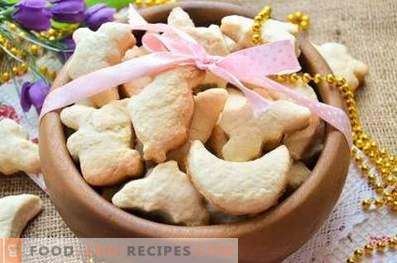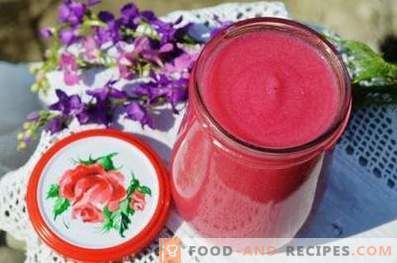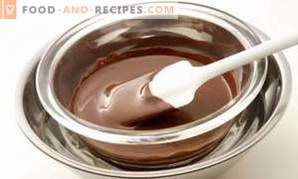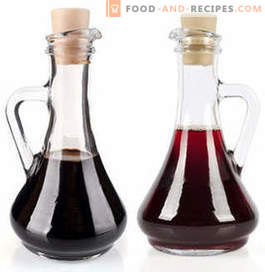
Balsamic vinegar, or balsamic, is a sweet-and-sour seasoning made from special grape varieties. It is popular in Italian cuisine and in demand by consumers in other Western European countries.
Salads are seasoned with balsamic, they are added to meat, poultry (in particular, duck) and fish dishes.
To prepare this special vinegar, pressed grape juice is heated to a thick, dark-colored syrup, wine vinegar is added, spices and stored in wooden barrels. To seasoning reached condition, it will take at least three years. And the optimal period of exposure is 50 years. Therefore, it is possible to find a replacement for such an original product, but full compliance cannot be achieved.
Wine Vinegar - An Alternative to Balsamic Wine
Since wine vinegar is a significant component of the original seasoning, it can be considered a good substitute for balsamic. But you still have to work to bring it closer to the original. For this wine vinegar insist on herbs and spices - tarragon and mint:
- Mix vinegar with herbs. It is advisable to use glass containers for this.
- Placed in a dark place for 6 weeks.
- Infusion sent to storage in the refrigerator.
- Periodically shaken.
A glass (200 ml) of wine vinegar will need 50 g of spices.
Apple Cider Vinegar - the basis of seasoning-substitute
Apple cider vinegar is another possible balsamic substitute in meat and fish dishes. Used for cooking:
- medium sized green apple;
- half a liter of apple cider vinegar;
- 3 sprig of tarragon;
- one clove of garlic;
- tsp white pepper and sugar.
Cooking vinegar like this:
- Apple is cut into small slices.
- Chop the sprig of tarragon.
- Divide the garlic in half.
- Ship all dry ingredients in a glass container and pour 9% apple cider vinegar.
- Cork the dishes and leave for two weeks to infuse. To do this, choose a cool and dark place.
- After 14 days, filter the seasoning and keep it in a cool place.
The resulting product, due to its taste, adequately replaces balsamic vinegar.
Using White Sherry
Fortified wine sherry, made from white grapes, often appears in recipes for cooking. It is well suited for the replacement of balsamic vinegar. It will take:
- 700 g of wine;
- 20 g of sugar;
- 2 sprigs of rosemary and 2 small chili peppers;
- 1 teaspoon of cinnamon and white pepper;
- 70 ml of acetic essence.
We perform such manipulations:
- Heat the sugar in the pan until caramel is formed.
- Add wine and all other ingredients.
- We mix everything neatly.
- Pour the product into glass containers.
- We insist in the dark and cool for two weeks.
We filter the resulting product and use it as intended. It must also be stored in a cool and dark place.
Cherry Balsamic
The sourness inherent in cherries contributes to its successful use for the manufacture of balsamic substitute. The necessary components are:
- 400 g of pitted cherries;
- one lemon;
- 0, 4 liters of wine vinegar;
- 20 g of sugar;
- 0, 5 tsp. cinnamon
Preparation of balsamic vinegar we begin with the fact that we thoroughly crush the cherries in a glass heat-resistant container. For such a procedure, you can use a spoon.
Then:
- Squeeze the juice out of the lemon. Remove the skin.
- Add components of future seasoning to the crockery with cherries, including lemon peel.
- Gradually bring the mixture to a boil over low heat.
- Cook for about 20 minutes, not more.
- Cool and pour the fragrant mixture into a glass jar.
- Tightly close the container and send it to the fridge for 2 days.
- Filter the seasoning through several gauze layers.
- Pour balsamic vinegar into a clean glass bottle.
- We send the finished product on the shelf in the refrigerator.
Balsamic vinegar prepared in this way is an ideal sauce for grilled meat and salads.
Balsamic vinegar is one of the most common seasonings in Italian dishes. Infused over several years, it turns into a thick sweet and sour syrup that barely spills from the bottle neck.
There are varieties of balsamic vinegar, characterized by aging and technology. The easiest way to cook seasoning is from natural red wine. Such balsamic vinegar has a lighter shade and less saturated and rich taste.
Balsamic producers pour it into bottles, supply them with stickers or lids, different in color. This is the exact term for seasoning.
Home-made balsamic vinegar cannot but differ from the original. But in terms of utility, flavor and taste, it is no worse.
